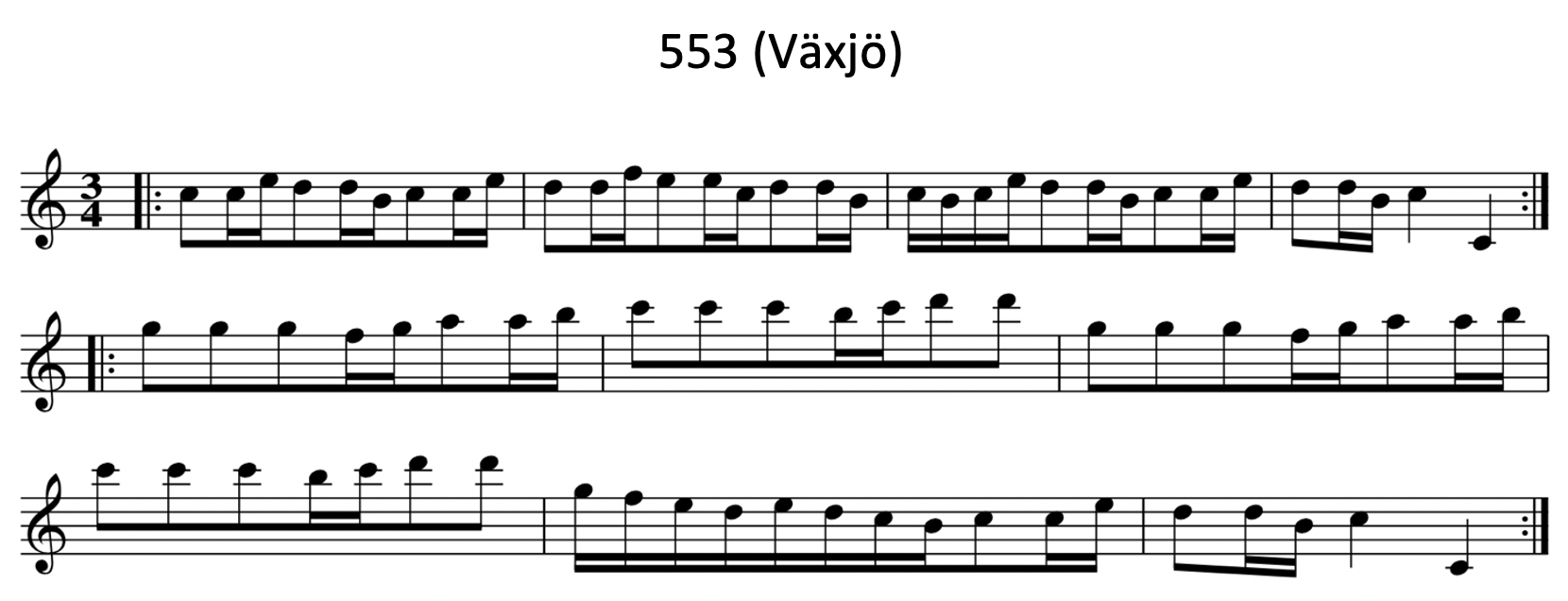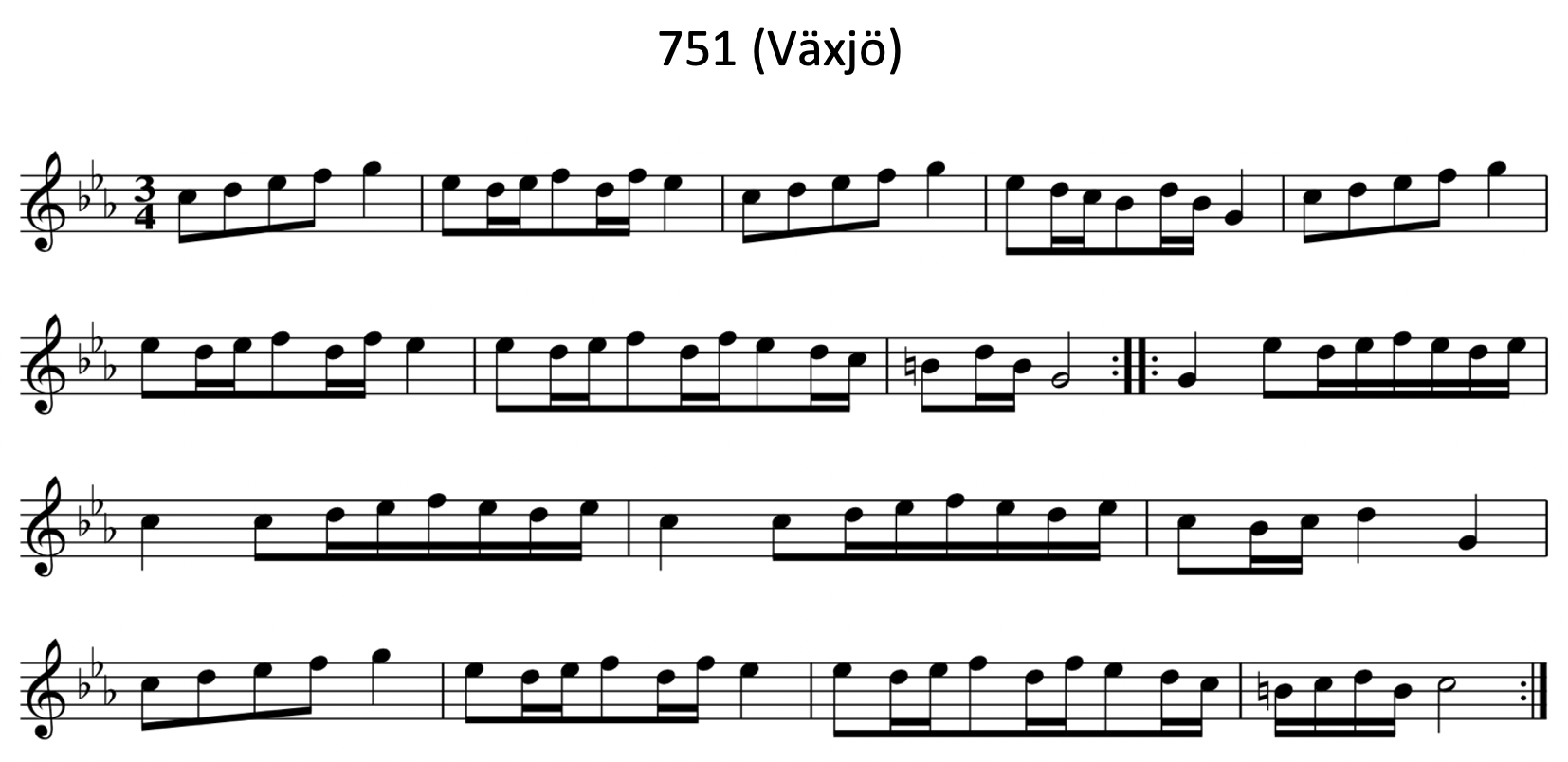Build an artificial system that generates the most plausible slängpolska – a traditional dance form from Scandinavia. Many examples of slängpolska can be found here. Up to two prizes will be awarded, and a performance of the best ones will occur at some point 2022 in Stockholm, Sweden.
The panel of judges consists of four (human) experts in Scandinavian traditional music and performance. Here's a video of two of this year's judges talking about slängpolska.
This challenge is part of a project that has received funding from the European Research Council (ERC) under the European Union’s Horizon 2020 research and innovation programme (Grant agreement No. 864189 MUSAiC: Music at the Frontiers of Artificial Creativity and Criticism).
This challenge has three aims:
- to promote meaningful approaches to evaluating music Ai;
- to see how music Ai research can benefit from traditional music, and how traditional music can benefit from music Ai research;
- to facilitate discussions about the ethics of music Ai research applied to traditional music practices.
- BEFORE JULY 17, register your intent to participate by notifying the organizer.
- Build a system that generates slängpolskor.
- Have your system generate 1000 slängpolskor rendered as MIDI and in notation (such as ABC, musicXML, or staff).
- Write a brief technical document describing how you built your system, presenting some of its features and outcomes, and linking to your code and models for reproducibility.
- BEFORE NOVEMBER 26, email the organizer:
- a link to download your generated collection of 1000 slängpolskor rendered as MIDI and in notation (such as ABC, musicXML, or staff).
- a link to download your technical document (pdf)
- one slängpolska in your collection that you want included in the evaluation (choose what you think is the best).
- Only one submission from each participant will be allowed.
The evaluation of submissions will proceed in the following way:
- From each submitted collection, one tune is selected by the participant of the collection, and four others are selected at random.
- All selected tunes are sent to all judges for review.
- Stage 1 Each judge reviews the acceptability of each tune according to the following:
- If plagiarism detected, reject and do not review.
- If meter is not characteristic of a slängpolska, reject and do not review.
- If rhythm is not characteristic of a slängpolska, reject and do not review.
- Stage 2 Each judge will rate on a scale of 1–5 the acceptable tunes along the following qualities:
- Danceability
- Stylistic coherence
- Formal coherence
- Playability
- Stage 3 Each judge will present to the other judges the best tunes from their collections, and together will decide which are the best slängpolskor (or to award no prize).
- Stage 4 Selected slängpolskor will be performed for a set of dancers, who will vote for their favorites (or to award no prize).
- "Where can I get data?" See folkwiki for relevant tunes rendered as ABC and MIDI.
- "What happened at The Ai Music Generation Challenge 2020?" A summary of the 2020 Challenge is here. A video of the winning jigs is here.
- Key: "B": Benchmark, "J": Jönköping, "K": Kalmar, "O": Oskarshamn, "S": Småland, "V": Växjö
- red color: tune selected by participant
- green color: tune mentioned by judge as a favorite
FIRST PRIZES:
- 267 (V)
- 576 (V)
- 23 (S, participant selected)
SECOND PRIZES:
- 553 (V)
- 751 (V)
HONORABLE MENTIONS:
- 12 (B, participant selected)
- 117 (V)
- 263 (V)
- 326 (B)
- 413 (S)
- 738 (V, participant selected)
- 980 (S)
Other comments:
- 403 (O) "Disturbing but fun"
The "selection by dancers" occured at Skeppis October 9 2022, and involved two of the judges performing 5 tunes several times for several dancers. Participants were given two beans each to place in five bottles, numbered according to the tunes. 17 dancers cast their votes, and here's the results:
| Tune | Beans |
|---|---|
| 576 (V) | 9 |
| 23 (S) | 8 |
| 267 (V) | 6 |
| 553 (V) | 6 |
| 751 (V) | 5 |













